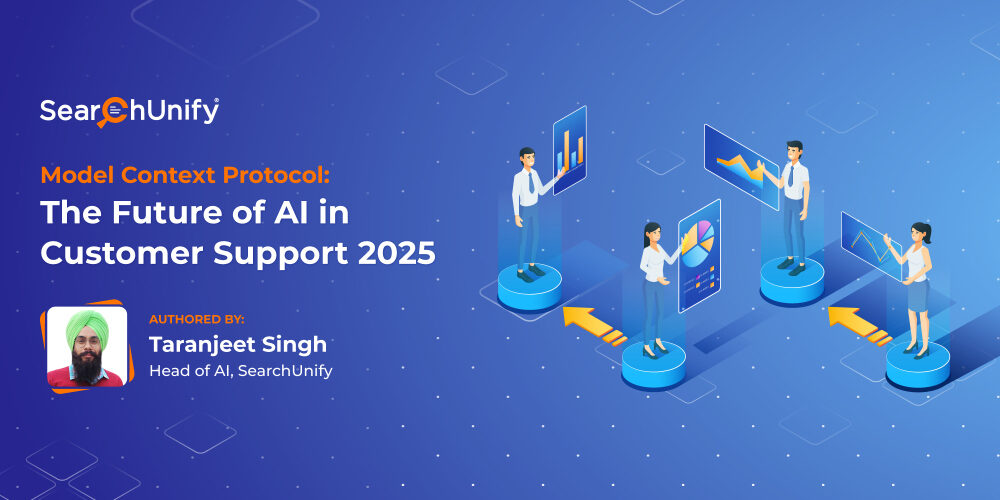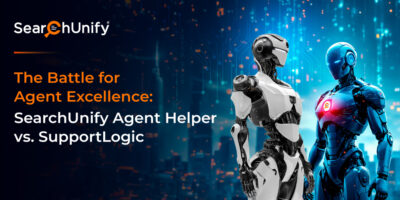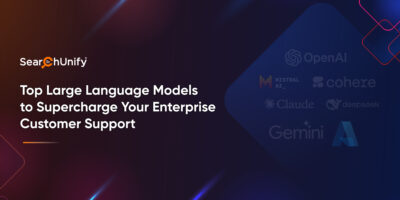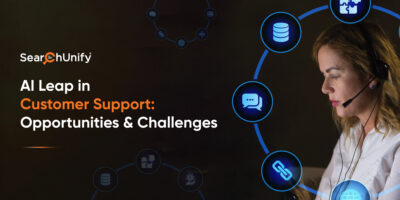
“You’ve got to start with the customer experience and work back toward the technology, not the other way around.”
~ Steve Jobs, Co-founder, Apple
What if all the applications and tools on your smartphone could talk to each other without any human intervention? It’d be more like a team working together without any confusion. That’s what Model Context Protocol (MCP) does but for advanced AI tools in businesses.
As it turns out, business dynamics depend heavily on artificial intelligence (AI) to enhance operations. However, disparate tools, fragmented systems, and inconsistent data usage hinder achieving the full potential of AI.
That’s where – the Model Context Protocol (MCP) enters the picture. It’s none other than a progressive framework designed to bridge these gaps by enabling seamless communication across AI tools.
In simpler terms, the model context protocol is built to help different AI systems, such as data analysis tools, chatbots, and search engines, work together seamlessly. Thus, each tool won’t be doing its own thing, rather MCP acts like a translator, ensuring they comprehend each other and share the right information at the right time.
Now, let’s explore how Model context protocol helps reshape the customer support industry in no time.
Why Traditional AI Falls Short
Traditional AI models face challenges like:
- Limited Tool Interactions: Difficulties in integrating and interacting with multiple programs and systems effectively.
- Fragmented Workflows: Failing to maintain coherence across extended interactions, leading to inefficiencies.
- Inconsistent Context Management: Losing track of vital contextual information during complex, long-form conversations.
Quick Fact: 65% of enterprise AI implementations fail to deliver expected outcomes due to contextual limitations.
What is the Model Context Protocol?
Model Context Protocol (MCP) is a standardized framework designed to enable seamless interoperability among AI tools. Developed by Anthropic, MCP ensures that diverse AI systems, such as language models, semantic embedding generators, and contextual analysis engines, can communicate effectively. For the customer support industry, MCP transforms the way enterprises leverage data, AI models, and workflows to improve agent efficiency, reduce response times, and deliver consistent customer experiences.
Let’s understand this with an example:
When a customer support agent tries to solve an intricate client issue, he needs to search for past issues in the database, find troubleshooting guides from the knowledge base, and use a chatbot to provide an instant update from the customer. Without Model context protocol (MCP), databases, knowledge, and chatbots won’t be able to ‘talk’ to each other. Ultimately, the agent wastes time jumping between tools, leading to delays and frustration.

How MCP Enhances AI Integration in Customer Support?
AI Data Integration in customer support workflows often involves multiple tools—chatbots, ticketing systems, and knowledge bases. Disconnected tools create silos, hampering operational efficiency.
MCP addresses this by:
- Enabling smooth data exchange between AI models.
- Facilitating unified views of customer interactions across channels.
- Streamlining workflows for faster resolution times.
Example: Imagine a support ticket regarding a recurring software bug. MCP ensures the AI-driven diagnostic tool communicates seamlessly with the knowledge base to fetch a precise solution, reducing agent effort.
How Model Context Protocol Enhances AI Interoperability?
One of MCP’s standout features is its ability to foster interoperability across AI tools. In customer support, this ensures that tools like sentiment analyzers, natural language processing (NLP) engines, and automation platforms work cohesively.
Benefits:
- Agents receive real-time insights from multiple sources without toggling between systems.
- Faster resolutions by automating contextual responses.
- Enhanced collaboration between AI and human agents.
Example: A chatbot, powered by semantic embeddings through MCP, can escalate complex queries to a live agent with complete context, improving first-call resolution rates.
Standardized Frameworks for Enterprise AI
MCP acts as a standardized framework, essential for scaling enterprise AI strategies in industries like customer support. Without standardization, businesses face challenges such as inconsistent AI outputs and integration difficulties.
Why Standardization Matters?
- Reduces deployment times for new AI tools.
- Ensures consistent outputs across workflows.
- Simplifies training for support agents and teams.
Benefits of MCP in Enterprise Data Integration
Data silos are a significant pain point in customer support and knowledge management. MCP addresses this challenge by facilitating enterprise data integration, enabling systems to:
- Access unified datasets in real time.
- Reduce redundant data processing.
- Deliver personalized support experiences based on comprehensive data.
Leveraging MCP for Efficient AI Applications
Beyond integration, MCP empowers organizations to apply AI effectively in support workflows. Key use cases include:
- Semantic Search: MCP uses NLP to understand user intent and retrieve relevant knowledge base articles.
- Proactive Support: Identifies recurring issues and suggests preventive solutions.
- Knowledge Gap Analysis: Highlights missing content, enabling teams to create high-impact resources.
Example: An AI-powered knowledge base equipped with MCP reduced repetitive inquiries by 30%, freeing agents to handle complex tasks.
How SearchUnify Solutions Align With MCP?
SearchUnify’s suite of AI-powered solutions complements MCP’s capabilities by offering seamless interoperability, robust integrations, and intelligent workflows. With products like the Intelligent Chatbot, Unified Cognitive Platform, Knowbler, and Agent Helper, SearchUnify empowers customer support teams to:
- Automate contextual responses and retrieve relevant information instantly.
- Identify recurring issues and proactively address knowledge gaps.
- Optimize resources through advanced clustering and semantic search capabilities.
This synergy ensures support teams can achieve faster resolutions, improved accuracy, and exceptional customer experiences.
In short, the Model Context Protocol isn’t just a technological innovation, but a strategic necessity. From being efficient in customer support to enhancing knowledge management practices, MCP empowers enterprises to deliver value.
Frequently Asked Questions
1. What is Model context protocol?
Commonly termed as a translator for AI systems, MCP allows different AI tools like chatbots, search engines, and data analysis programs to work together smoothly by sharing and understanding context. In short, it makes AI tools smarter and more connected, just like teammates collaborate seamlessly when they fully understand each other.
2. How does MCP improve the performance of Large Language Models?
Yes, MCP helps LLMs work better by ensuring they stay consistent, comprehend contextual conversations, and work smoothly with other AI tools like data systems or chatbots.
3. What are the major components of the Model Context Protocol?
Simply put, MCP includes tools to make AI systems collaborate, a system to remember and share important contexts, secure pathways for data exchange, and standardized rules for smooth communication.
4. Does MCP play a role in data security and privacy?
MCP ensures that data is shared safely by encrypting it, following privacy laws, and only giving access to trusted systems.
5. What are the major industries that benefit from implementing MCP?
Many industries like customer support, healthcare, retail, and banking implement MCP to improve issue resolution, better patient data sharing, personalized shopping experiences, and fraud detection.
6. What role does MCP play in proactive customer support?
MCP is crucial in identifying recurring issues by suggesting preventive measures and highlighting knowledge gaps to enable support teams for proactive resolutions.
7. What role does MCP play in ensuring consistent AI outputs?
As a standardized framework, MCP ensures all AI tools and solutions adhere to the same protocols, thus reducing variability and improving output quality.










